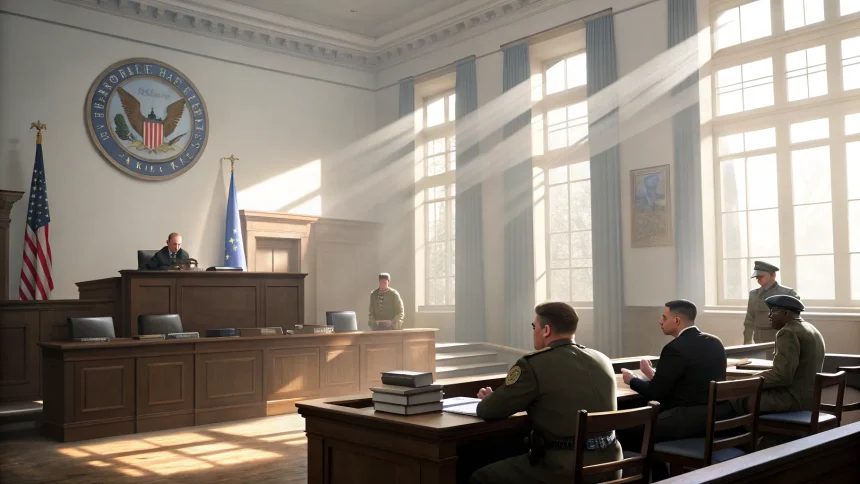A new lawsuit challenges a Defense Department plan to send 200 National Guard troops to Portland, raising urgent questions about authority, mission scope, and civil liberties. The suit follows a memo sent to Oregon leaders and sets up a legal fight over how, when, and why troops can be used in domestic situations.
The filing puts Portland, Oregon, at the center of a national debate on the use of military forces in local security. It also tests the limits of federal and state power over the Guard. The case could influence policy for future deployments in cities facing unrest or large-scale emergencies.
The suit was filed after the Defense Department sent a memo to Oregon state leaders informing them about the deployment of 200 National Guard troops in Portland.
What is at stake
At issue is who controls the Guard and under what legal authority. The National Guard can operate under state control (Title 32) or federal control (Title 10). Each path has different rules. Under Title 32, the governor leads and troops can support law enforcement. Under Title 10, the president leads and domestic law enforcement roles are tightly limited by the Posse Comitatus Act.
Lawyers for the plaintiffs are expected to argue that unclear authority and mission details risk overreach. They may also say that a military presence could chill free speech or lead to uneven enforcement. Defense officials typically argue that Guard deployments can support logistics, protect infrastructure, or assist overwhelmed agencies, not replace police.
How we got here
Portland has seen waves of protest and large public gatherings in recent years. During 2020, the city drew national attention as federal officers clashed with demonstrators near the federal courthouse. National Guard units were used in several states during that period for crowd management and support duties. Those episodes sparked court challenges and reviews of tactics.
The current dispute revives themes from that time. Residents worry about accountability when multiple agencies operate side by side. City officials often press for clear rules of engagement, use-of-force policies, and complaint processes. Civil rights groups push for transparency and limits on surveillance.
Legal questions the court may weigh
- What authority governs the deployment: state or federal?
- What is the specific mission for the 200 troops?
- How will coordination with local police be managed and documented?
- What safeguards exist to protect First and Fourth Amendment rights?
- Is there a defined end date and review process?
Perspectives from the ground
State leaders are likely to seek clear terms before accepting any outside force. They often ask for command clarity, reporting lines, and mutual aid agreements. City officials may focus on how troops would be deployed, where, and for how long. Community advocates are likely to press for public reporting on stops, arrests, and crowd-control tools.
Guard members bring training in logistics, traffic control, and emergency response. Advocates say those skills can help during major events, natural disasters, or spikes in crime. Critics counter that uniformed troops near protest zones can escalate tensions and blur the line between military support and policing.
What the law allows—and what it limits
The Posse Comitatus Act generally bars the federal military from performing domestic law enforcement. The Insurrection Act is a rare exception, allowing federal troops to quell unrest under narrow conditions. Courts review these moves carefully. Judges often look for clear evidence that civilian authorities are unable to function without military help.
If the Guard remains under state control, the governor can set rules for engagement. That can include bans on certain crowd-control tools, strict reporting, and body-worn camera use when paired with police. A federalized Guard would face tighter limits on direct law enforcement roles.
What comes next
The plaintiffs could seek a temporary restraining order to pause any deployment while the court reviews the plan. The judge may request the memo, operations plans, and any agreements with local officials. Expect fast filings, given the public interest and potential for real-world impact.
Portland’s leaders may pursue a negotiated framework that narrows the mission to logistics and infrastructure support. That approach can ease civil liberties concerns while preserving surge capacity during peak needs.
A court ruling will likely press for clarity on command, mission scope, and oversight. It may set reporting requirements and a firm end date. The outcome could serve as a model for other states facing similar choices.
For residents, the key questions are simple. Who is in charge, what are troops allowed to do, and how will the public be informed? Those answers will shape trust and determine whether the deployment proceeds—or stops at the courthouse door.







